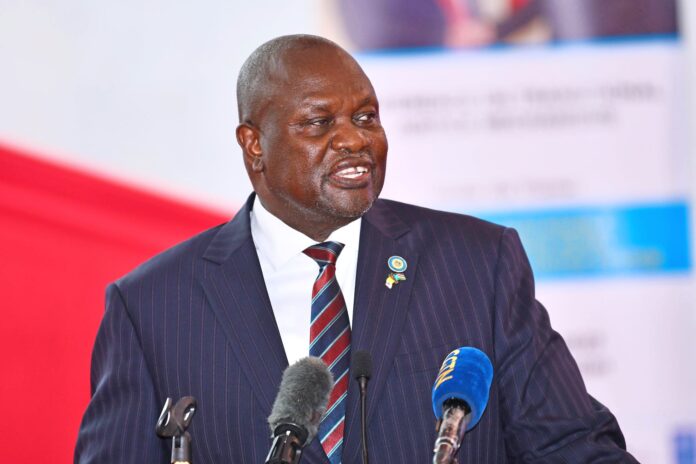- Riek Machar, South Sudan’s First Vice-President, charged with murder, treason, and crimes against humanity.
- Charges linked to a March attack in Nasir by the White Army militia, reportedly killing 250 soldiers and a general and downing a UN helicopter.
- Tanks and soldiers block roads leading to Machar’s Juba residence; he has been under house arrest since March.
- Seven close allies also charged, including Petroleum Minister Puot Kang Chol; 13 suspects remain at large.
- Case threatens to destabilize the 2018 peace agreement that ended a five-year civil war with 400,000 deaths.
- UN, AU, and regional leaders are urging restraint.
- Justice Minister insists the matter is now before the courts, not politics.
South Sudan’s fragile peace has been shaken after First Vice-President Riek Machar was formally charged with murder, treason, and crimes against humanity, raising fears of renewed conflict in the country.
Justice Minister Joseph Geng Akech announced that the case stems from a deadly assault in March by the White Army militia, a force dominated by members of Machar’s Nuer ethnic group. The militia reportedly stormed an army base in Nasir, killing about 250 soldiers and a general, while also firing on a UN helicopter, resulting in the pilot’s death.
Security has tightened in Juba, with tanks and troops stationed around Machar’s residence, where he has remained under house arrest since March.
The government has also indicted seven of Machar’s allies, including Petroleum Minister Puot Kang Chol and Army Deputy Chief of Staff Lt Gen Gabriel Duop Lam, who were arrested alongside him. Another 13 suspects remain at large.
Justice Minister Akech stressed that the trial would proceed in court, free from political interference, declaring that no position or influence would shield anyone from accountability.
The developments have sparked deep concern both inside and outside the country. The UN, African Union, and neighbouring states have repeatedly appealed for calm, fearing that the charges could unravel the 2018 peace deal that ended a five-year civil war which killed nearly 400,000 people.
Machar has not publicly responded to the allegations.
South Sudan, the world’s youngest nation after gaining independence in 2011, has struggled with cycles of ethnic violence and fragile political alliances, with the uneasy partnership between Machar and President Salva Kiir often tested.

